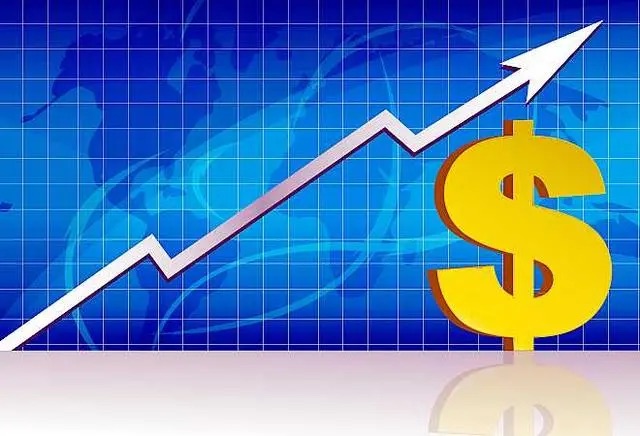
As the dust of the 2024 presidential election settled and the Republican candidate trump won the presidency again, financial markets reacted quickly. Among them, the soaring exchange rate of the US dollar has become the focus of market attention, which has brought great pressure to emerging market asset and commodity markets. Traders warned that if the dollar continued to rise too fast and too sharply, it could trigger further market volatility.
After Mr. trump won the election, the dollar index quickly climbed to a monthslong high. There are multiple factors behind this wave of rise. First, a series of policy proposals made by trump during the campaign, including higher tariffs, tax cuts, immigration restrictions and deregulation, were interpreted by the market as expectations that could lead to higher inflation and higher interest rates. These policy portfolios are bound to make the Federal Reserve more inclined to maintain high interest rates and attract money into dollar assets. Secondly, the Republican Party's control in both houses of Congress has also provided more convenience for trump to implement his policy proposals, further enhancing market confidence in the dollar. In addition, the policy trends of other major economies in the world have also had an impact on the exchange rate of the US dollar. Political turmoil in Germany and Japan, for example, and policy differences between the Federal Reserve and other major central banks have contributed to the dollar's strength.
As the dollar soared, currencies in emerging market countries generally depreciated, exacerbating their debt burdens, raising debt servicing costs and weakening their export competitiveness. For emerging market countries that depend on exports, a stronger dollar means that their products are more expensive in international markets, making them less competitive. This could not only lead to a decline in exports, but also trigger retaliatory tariff measures by trading partners and further worsen the trading environment. At the same time, depreciating currencies have raised the cost of imports in these countries, exacerbated inflationary pressures and further compressed the space for economic growth.
As the main valuation currency of commodities, the exchange rate change of the US dollar has an important impact on commodity prices. After Mr. Trump's victory, the surge in the dollar led to a general decline in dollar denominated commodity prices. This has not only hurt producers and exporters, but also triggered a chain reaction in related industries. The fall in oil prices, for example, is a severe blow to oil exporting countries, which could lead to a sharp drop in revenue, leading to social unrest and political crisis. At the same time, the decline in commodity prices may also trigger a wave of layoffs and overcapacity in related industries, which poses a serious obstacle to the global economic recovery.
The dollar's rise has also exacerbated uncertainty about global capital flows. In the context of the appreciation of the US dollar, investors have poured into US dollar assets to obtain higher returns and safe haven value. The instability of such capital flows may not only put pressure on the prices of other currencies and assets, but also trigger sharp fluctuations in financial markets. On the one hand, the increased attractiveness of dollar assets may lead to capital outflows from other markets and exacerbate the volatility of these markets; On the other hand, the excessive concentration of US dollar assets may also lead to the formation of market bubbles and increase the risk of financial crisis. In addition, the appreciation of the US dollar may also trigger a competitive devaluation of currencies around the world, further exacerbating international trade tensions.
For the United States itself, the appreciation of the dollar has also brought many challenges. While a strong dollar helps reduce import costs and increase consumer purchasing power, export competitiveness will be weakened. The overseas operations of American multinationals could be hit, putting pressure on profitability and stock prices. At the same time, a stronger dollar could exacerbate the United States' trade deficit. As a stronger dollar makes imports relatively cheap, American consumers may increase their purchases of imports, further widening the trade deficit. This will not only harm the economic interests of the United States, but also aggravate international trade tensions and trigger dissatisfaction and retaliatory measures from trading partners.
More seriously, the rise in the dollar could trigger a rise in Global trade protectionism. Countries may respond to the pressure of a stronger dollar by adopting more aggressive tariffs and other trade barriers. This will lead to further deterioration of the global trade environment and serious constraints on economic growth. The rise of trade protectionism will not only lead to a decline in Global trade volume, but also undermine international trade rules and order, triggering trade wars and geopolitical conflicts. This will bring greater uncertainty and risks to the global economy and pose a serious challenge to the global economic recovery.
The surge in the value of the dollar after Mr. Trump's victory poses a huge challenge to global markets. Emerging markets, commodity markets and the United States itself have been affected to varying degrees. In order to meet these challenges and promote the sustainable development of the global economy, countries need to strengthen cooperation and coordination to jointly cope with the risks and challenges brought about by the rise of the US dollar.

Driven by the Trump administration's push to relax financial regulations and the recovery of investment banking business, the market value of the six major banks in the United States has cumulatively increased by approximately 600 billion US dollars by 2025.
Driven by the Trump administration's push to relax financia…
On Christmas evening, U.S. President Trump posted on social…
According to multiple foreign media reports, the recent fin…
The middle class, once regarded as the cornerstone of Ameri…
On December 19th local time, the US military launched a lar…
The Boxing Day sunshine should have cast a false glow of pr…